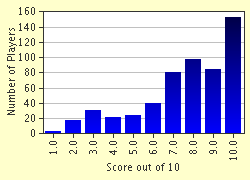Quiz Answer Key and Fun Facts
1. Let's start with the basics. Before you can visit your first cache, you must obtain (hopefully by legal means) a GPS unit. What do the initials GPS stand for?
2. So, you've obtained your first GPS unit and now you're ready to find your first cache. First you must go to the Geocaching.com website and pull up the information on a few caches. The advanced search option gives you almost unlimited means by which to begin searching for caches. Which of the following is not a possible searching criterion on the advanced search page?
3. You've pulled up a list of all of the caches that are within a 100 mile radius of where you live and you see that there are many different types of caches. Which of the following is not one of the cache types that are listed on Geocaching.com?
4. You've filtered through the list and decided on your first cache. Hopefully you picked something fairly easy for your first find. The two criteria by which difficulty is judged are the difficulty of the hide and the difficulty of the terrain.
5. As you prepare to go looking for your first cache, you read in the cache description that some degree of stealth might be required due to the amount of non-geocachers present in the area. What is the common geocaching term for non-geocachers?
6. The cache description for your first cache also informs you that this would be an ideal location to practice "Cache in Trash out." What is meant by "Cache in Trash out?"
7. You have officially found your first cache! You are able to stop celebrating long enough to open the cache container. Which of the following would not be an appropriate action once you have opened the cache?
8. As you rifle through the contents of your first cache, you discover "Wilfred the Gnome" and realize that you've found your first travel bug! What exactly is a travel bug?
9. Having your first cache find under your belt you're ready to tackle the rest of your zip code. Some of the Geocaching lingo is still a bit unfamiliar to you. You notice, for example, in the one cache description that there is a prize for the FTF. What does FTF stand for?
10. Now that you are a seasoned geocacher, you've decided that it is time to place your first cache. You have read the guidelines and have discovered the perfect location. Now comes the time to stock your geocache with goodies for people to find. Which of the following would be an appropriate item to leave in a geocache?
Source: Author
bmrsnr
This quiz was reviewed by FunTrivia editor
Leau before going online.
Any errors found in FunTrivia content are routinely corrected through our feedback system.

